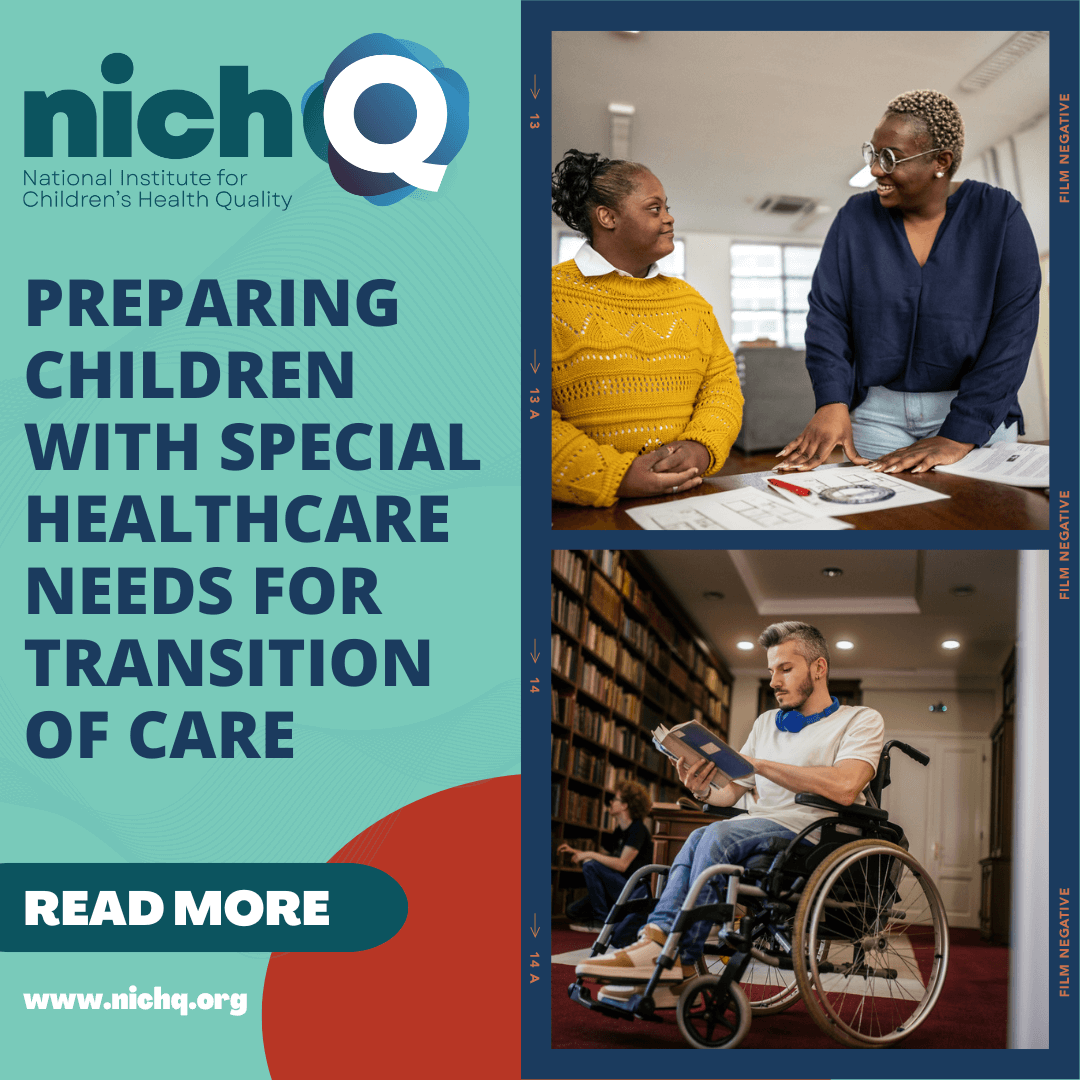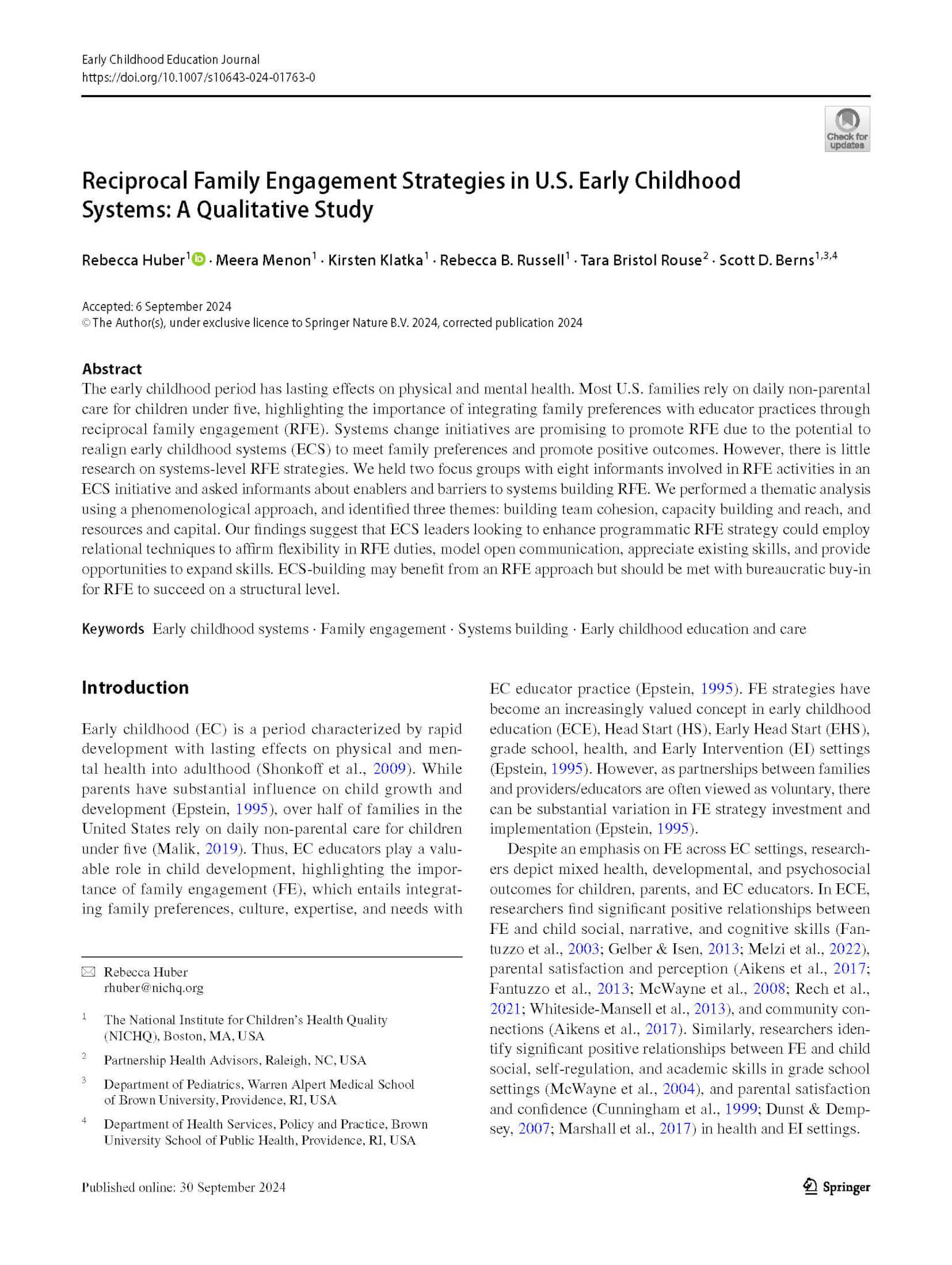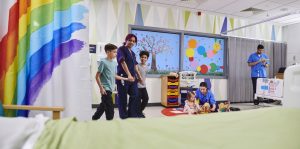Year in Review
Top NICHQ Resources of 2024

Resources to Support YOur Work
Ensuring Continued Improvement in MCH
In the final weeks of 2024, we’re looking back at all we’ve accomplished together. As we look toward 2025, we’re sharing a run-down of our most popular resources that helped guide you throughout the year, including on demand NICHQ articles and stories with topics on reducing preterm birth, fatherhood involvement, safe infant sleep, and so much more!
NICHQ Projects
Learn About NICHQ’s New Initiatives
In 2024, NICHQ announced three new projects dedicated to improving birth outcomes and eliminating infant mortality and maternal mortality and morbidity.
Project Resource
Guide to College Transition
This guide can be used by sickle cell warriors who are planning to attend college to share with their care team, caregivers, appropriate college staff, family, and friends, as they prepare to navigate a new environment and their growing responsibilities.
A Guide to College Transition
Prepare for transition from pediatric to adult care.
Publications
Reciprocal Family Engagement Strategies in U.S. Early Childhood Systems: A Qualitative Study
Abstract
The early childhood period has lasting effects on physical and mental health. Most U.S. families rely on daily non-parental care for children under five, highlighting the importance of integrating family preferences with educator practices through reciprocal family engagement (RFE). Systems change initiatives are promising to promote RFE due to the potential to realign early childhood systems (ECS) to meet family preferences and promote positive outcomes. However, there is little research on systems-level RFE strategies. We held two focus groups with eight informants involved in RFE activities in an ECS initiative and asked informants about enablers and barriers to systems building RFE. We performed a thematic analysis using a phenomenological approach, and identified three themes: building team cohesion, capacity building and reach, and resources and capital. Our findings suggest that ECS leaders looking to enhance programmatic RFE strategy could employ relational techniques to affirm flexibility in RFE duties, model open communication, appreciate existing skills, and provide opportunities to expand skills. ECS-building may benefit from an RFE approach but should be met with bureaucratic buy-in for RFE to succeed on a structural level.
Save the Date
Weekly Observances
Five distinct weeks are celebrated during Breastfeeding Awareness Month.

NICHQ Insights
Reading List for National Breastfeeding Awareness Month
At NICHQ, we are committed to making breastfeeding and infant safe sleep the national norm. Check out our insights to learn how you can support this initiative.
NICHQ News
Stay in the Loop
Get information on new NICHQ initiatives, resources, publications, and other NICHQ news delivered directly to your inbox.
Additional Resources from NICHQ
Leveraging Data for Equity in Maternal and Child Health
Final Formative Evaluation Report on the Data Roadmap for Racial Equity Advancement in Maternal and Child Health Project
Equity Engagement Hub
Use NICHQ’s Equity Engagement Hub to register for upcoming equity events, view prior ones, and check out related blogs, resources, and information.








